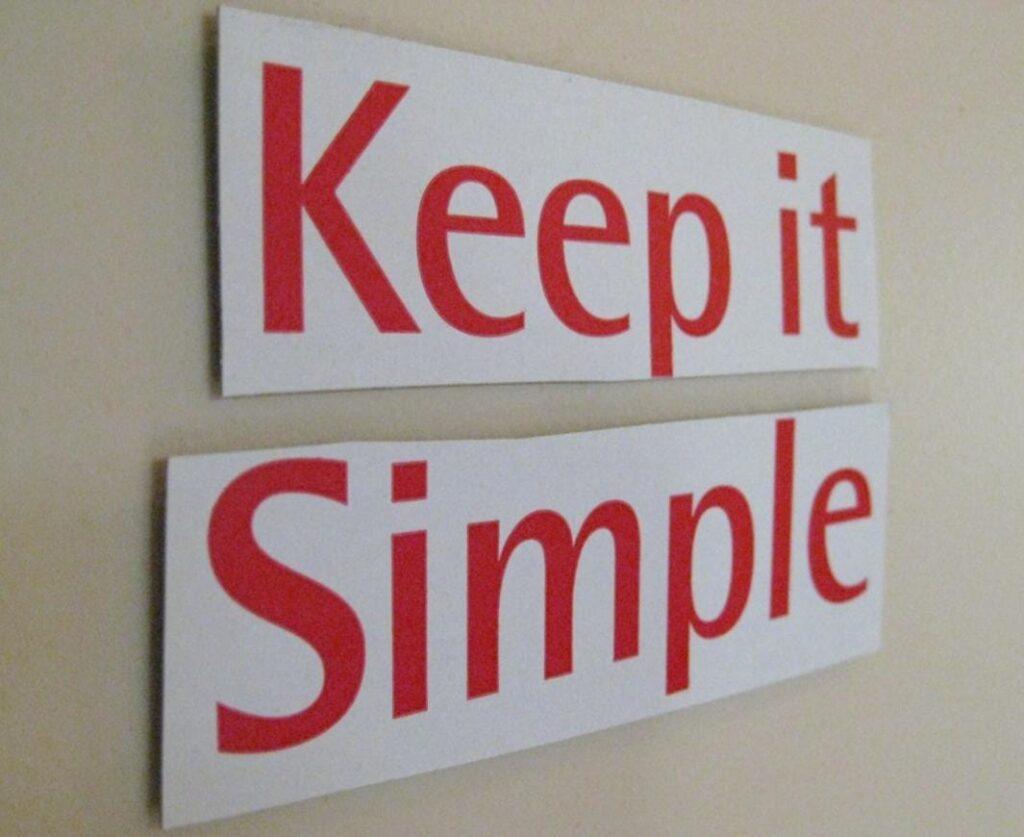21st August, 2023
Leonardo da Vinci once said: “Simplicity is the ultimate sophistication.”
KISS is a design principle that stands for “Keep it simple and straightforward” or sometimes “Keep it short or simple” or “Keep it simple, stupid.”
For businesses, KISS can be a useful reminder not to make anything more complicated than it has to be.
It was a design principle that originated in the United States in the 1960s. It means that most systems work best if you keep them simple. In other words, do not complicate a simple system that works. Otherwise, it probably won’t work so well.
We were taught that we should, Communicate in such a way that your message is unmistakably clear. If the message is not clear, the prospect ends up confused, and a confused person seldom takes action.
One company that’s famous for following the KISS principle is Apple. As Ken Segall, Apple’s creative team leader, wrote in his book ‘Think Simple: How Smart Leaders Defeat Complexity’, “There were principles that Steve Jobs would never compromise. Simplicity is one of them.”
The principle though originated for design, but the advice can be followed in any field of endeavour.
For example, in marathon running today, coaches and athletes use sports psychologists, computerized training regimens, and state-of-the-art running shoes.
Perhaps all of that is necessary if you want to win the big race.
We are not denying these things help, but Toshihiko Seko didn’t need them.
Seko won the Boston Marathon in 1981. His training program was simplicity itself, and Seko explained it with twelve words: “I run ten kilometres in the morning and twenty in the evening.”
At this point you probably think, There’s a catch! But this plan enabled him to outrun the world’s greatest, fastest, most gifted runners.
When Seko was told that his plan seemed too simple compared to that of other marathoners, he replied, “The plan is simple, but I do it every single day, 365 days a year.”
Simple? Yes.
Easy? No.
It is my conviction that most people fail to reach their goals not because their plans are too simple or too complicated.
Most people don’t reach their goals because they’re not committed and willing to follow their plans.
Many of our goals do not require detailed plans, but all of them require that we follow the plan we have.
Seko’s plan was effective because he followed it every day. You can’t get more simple than that!
Follow Toshihiko Seko’s example; make certain your plan to reach your goal is simple, then follow it daily & stay blessed forever.

